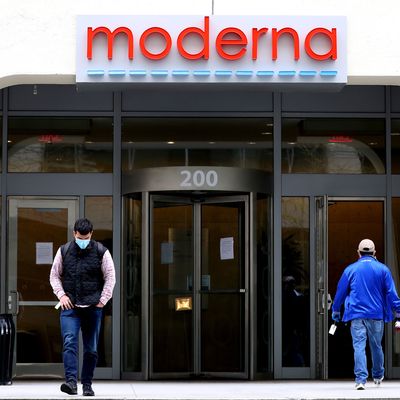
The American pharmaceutical company Moderna announced Monday that new data showed its coronavirus vaccine to be remarkably effective at combating the infection, and that it would seek authorization from the FDA and European regulators to allow emergency use. The company’s CEO told the New York Times that shots could be available to high-risk populations as soon as December 21.
Dr. Tal Zaks, Moderna’s chief medical officer, told the AP that when he heard of the new results, “I allowed myself to cry for the first time.”
Earlier this month, Moderna had reported that its vaccine candidate, which was developed in conjunction with the Trump administration’s Operation Warp Speed, was successful at combating the coronavirus, helping raise hopes that a pandemic that has killed at least 266,000 Americans and 1.4 million people worldwide might soon be tamed. Monday’s data is further proof that the company’s innovative approach, which involves harnessing messenger RNA, is working. The pharmaceutical giant Pfizer, which has taken a similar approach, reported positive results from its vaccine trials the same week as Moderna, and is also seeking the FDA’s emergency authorization. Another competitor, AstraZeneca, published sunny results, but faces questions about its vaccine practices and methodology.
If the FDA grants authorization — President Trump is urging the agency to do so — Moderna says it can produce up to 20 million doses of its vaccine — which requires two doses per person — by late December, and many multiples of that in 2021. The first doses would likely go to high-risk populations, like health-care workers and nursing-home residents, before being rolled out to the general population.
Beyond the logistical challenge of delivering enough shots, the two-dose vaccine presents a potential problem. Patients in Moderna and Pfizer’s coronavirus trials have reported side effects from the first shot including high fever, bad headaches, and exhaustion, raising the possibility that people may not return for the second one. At least one major pharmaceutical player, Johnson & Johnson, is working on a one-dose vaccine, but has yet to publish results from its trials.






























